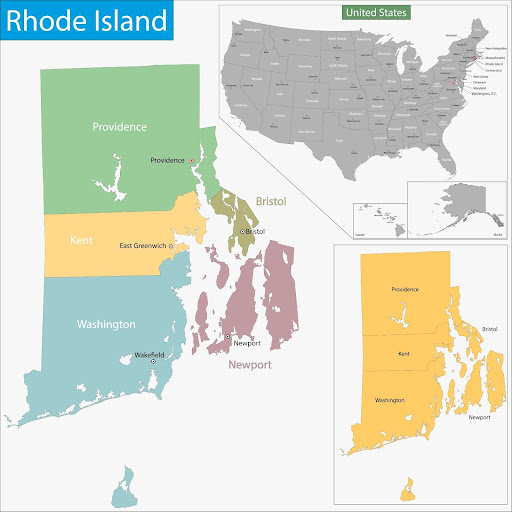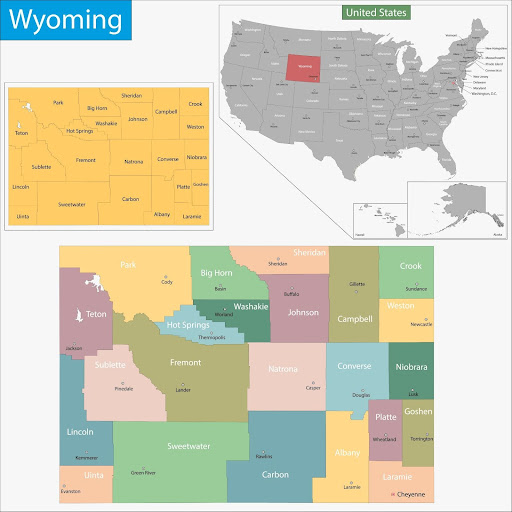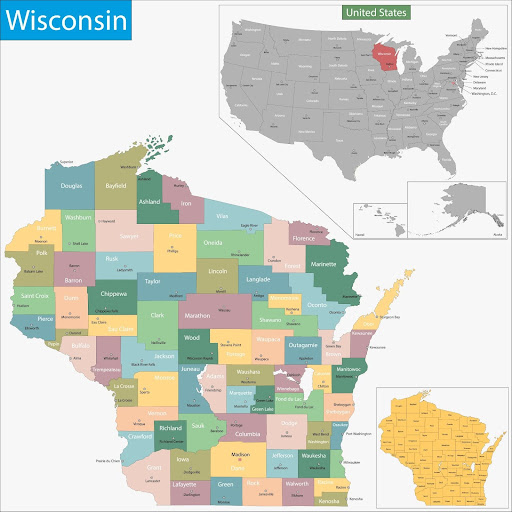Table of Contents
Rhode Island is home to over 400,000 forested acres, almost 60% of the landmass, with frequent human activity in and around wildland-urban interface zones. Most wildfires here are small in scale but high in frequency, fueled by dry leaf litter, wind, and careless ignition sources.
For fire investigators, that means agility. Investigative challenges include patchwork jurisdiction, limited local wildland certifications, and a heavy reliance on mutual aid. This guide on wildland fire resources in Rhode Island gives you the lay of the land, from agency roles to training access, so you can move confidently across the state's compact but combustible terrain.
Find tools and contacts on our wildland firefighting resources page.
Live Incident Updates & Maps
You can track active incidents and conditions throughout Rhode Island with this live tool:
State Overview
Rhode Island’s wildland fire behavior is driven more by human activity and weather than elevation or fuel load. Fires typically occur in forested parks, state management areas, and agricultural transition zones.
- South County & Western Rhode Island: Pine-dominated forests with sandy soils, prone to fast-moving surface fires.
- WUI Zones: Suburban development near forest edges (e.g., Coventry, Exeter, West Greenwich) creates risk and complexity.
- Northern Rhode Island: More fragmented forest cover, but still vulnerable to roadside ignitions and illegal burning.
- Coastal Areas: Less frequent, but winds can carry embers into marsh grasses and dry brush along the shoreline.
Wildfire Season Timeline
Rhode Island experiences a defined but short fire season, primarily spring and fall. Unlike the West, summer green-up keeps fire risk low during peak heat.
- Spring (March–May): Primary fire season. Dry leaf litter and wind are the main culprits. Human ignitions (e.g., debris burning, campfires) dominate.
- Summer (June–August): Low wildfire activity due to high humidity and dense vegetation.
- Fall (September–November): Secondary fire season. Dry leaf fall and drought conditions can elevate risk, especially during wind events.
Key State Agencies Involved
- Rhode Island Department of Environmental Management (RIDEM): RIDEM’s Division of Forest Environment leads wildfire suppression and investigation statewide. The Forest Fire Program oversees training, dispatch, mutual aid, and enforcement of burn regulations. Investigators often coordinate with forest rangers, many of whom are cross-trained in fire origin and cause determination.
- Rhode Island Emergency Management Agency (RIEMA): RIEMA coordinates interagency response during large incidents and is responsible for activating mutual aid through the Emergency Management Assistance Compact (EMAC).
- Local Fire Departments & Municipal Governments: Most wildland fires are handled by local departments, especially in rural townships. Many do not have dedicated wildland units, so coordination with RIDEM is essential for extended operations or formal investigations.
Local Wildland Firefighting Resources
Initial attacks in Rhode Island are typically managed by local departments and supported by RIDEM forest rangers and volunteer fire wardens. During high fire danger days, RIDEM may stage additional personnel or equipment in priority areas.
Wildfire response is enhanced by inter-municipal mutual aid and state/federal partnerships. While the state lacks IMTs, neighboring states often lend support through NECC when needed.
List of Local/State/Federal Fire Response Agencies
- RIDEM Division of Forest Environment: Lead state agency for wildfire suppression and cause investigation. Manages wildfire equipment cache and interagency coordination.
- Municipal Fire Departments: Handle most first-response wildland fire calls. Vary in training levels and wildland equipment. Investigators should expect limited wildland certification in some departments.
- Volunteer Fire Wardens: Appointed by RIDEM to assist with suppression, patrol, and investigation. Often embedded in local departments and familiar with the terrain and fire history.
- Federal Agencies (USFS / BIA as needed): Although there are no national forests in Rhode Island, federal assistance (training, equipment, incident management) may come from USFS Region 9 or Northeastern Interagency Coordination Center.
Contact Numbers and Emergency Links
- To Report a Wildfire: Dial 911
- RIDEM Division of Forest Environment – Wildfire Unit: (401) 222-2445
- Burn Permit Info & Restrictions: https://dem.ri.gov
- NECC Fire Dispatch & Coordination: https://gacc.nifc.gov/necc
- Air Quality/Smoke Alerts: https://fire.airnow.gov
Training & Volunteering
Rhode Island’s wildland fire training is coordinated through RIDEM and regional federal partners. Most wildland courses are offered in collaboration with Massachusetts or Connecticut.
NWCG-Approved Academies and Centers
Volunteer and Seasonal Training Opportunities
- Volunteer Fire Warden Program (RIDEM): Trains local volunteers in suppression and investigation support. Many fire wardens assist with scene preservation, ignition interviews, and small-scale origin analysis.
- Seasonal Firefighter Recruitment: RIDEM may recruit seasonal personnel during dry years. Training includes basic NWCG qualifications and familiarization with Rhode Island-specific terrain and response protocols.
- Community-Based Education & Prevention: RIDEM also offers Firewise USA programs and public education support to local departments. Investigators may be involved in post-incident outreach or prevention planning.
Stay Informed on Rhode Island’s Wildland Fire Landscape
Rhode Island’s wildfire risk is subtle but rising; longer dry spells, heavier recreational use, and more WUI development are pushing the state toward a more fire-active future. As an investigator, your role is foundational in both prevention and response.
Keep track of statewide burn restrictions, stay plugged into NECC dispatch notifications, and build relationships with both RIDEM and local chiefs. Unlike Western states, you won’t always have a clear jurisdictional boundary, so knowing who’s actually in charge on-scene matters.
And don’t underestimate the small fires. In this state, they’re the norm, and they’re where most of your investigations will start.
FAQs
Who investigates wildfires in Rhode Island?
RIDEM leads investigations on state-managed lands and in most large incidents. Local departments may conduct their own investigations for small fires, but often defer to RIDEM or coordinate jointly.
Can I conduct a controlled burn in Rhode Island?
Yes, but only with approval from RIDEM and your local fire authority. Burn bans are common in spring and fall. Always check the daily fire danger rating before ignition.
Where can I get wildland fire training in Rhode Island?
Start with RIDEM’s annual wildfire training calendar. For advanced courses, look at NFFPC events or the Massachusetts Firefighting Academy.










